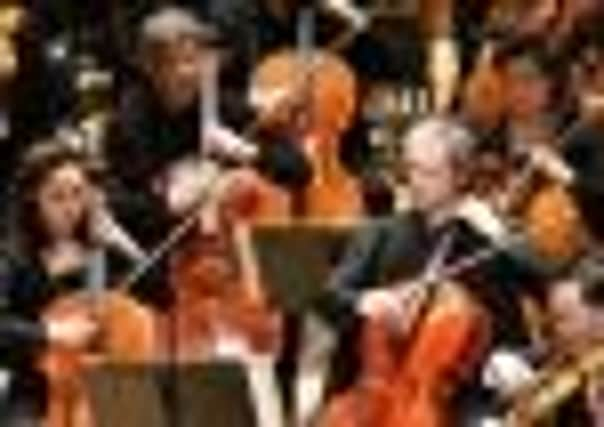Radio’s classical sound of music that is still going strong


IT is 20 years since Classic FM first burst on to our airwaves, with the aim of bringing classical music to the masses.
Some critics thought a commercial radio station trying to promote something that many people regarded as elitist was doomed to failure. But two decades on, it’s still going strong. The chairman and co-founder of Classic FM, Ralph Bernard, says it is “a station for everyone”, one that plays music 24 hours a day and attracts 5.5 million listeners each week.
Advertisement
Hide AdAdvertisement
Hide AdIts aim was to bring classical music to a wider audience and Professor Simon Keefe, head of music at Sheffield University, believes it has. “It’s had a positive effect because it’s shown that classical music can have a wide appeal and isn’t just elitist,” he says.
“What it has also done is show that the divisions between classical music and pop and jazz are artificial, and by including different types of music under the umbrella of ‘classical music’ they have broken down these barriers.”
Prof Keefe says the station’s success has forced BBC Radio 3 to “rethink” its own approach to classical music. “The fact it has been so successful has made Radio 3 change its strategy. In the mornings now it doesn’t play whole works or symphonies but instead you get short, sharp segments. Have they gone too far in changing their strategy? That’s another question. But there’s no doubt they reacted to the success of Classic FM.”
He says it remains to be seen whether Classic FM’s popularity can have a knock-on effect on attendance figures for classical concerts. “Hopefully, it will, but it has certainly made classical music more accessible over the past 20 years.”
Advertisement
Hide AdAdvertisement
Hide AdDr Rupert Till, senior lecturer in musical technology and popular music at Huddersfield University, believes it has also changed people’s attitudes.
“Whereas Radio 3, at the time, saw classical music as something to be listened to seriously, Classic FM saw it more as entertainment. Instead of playing whole pieces, it played classical hits which has proved very successful.”
But he says there is nothing radical about this. “That approach to classical music is no different to Radio 1 playing hits from the pop charts. But what it has done is broaden the audience for classical music by also playing music from films and theatre shows.”
In the 1980s, musicians such as violinist Nigel Kennedy blurred the boundaries between pop and classical music, something the likes of Katherine Jenkins, Charlotte Church and classical groups like The Singing Priests have continued to do in recent years.
Advertisement
Hide AdAdvertisement
Hide Ad“What Classic FM has done very well is it has diversified,” says Dr Till, “and over the past 20 years we’ve seen a growth in the number of classical musicians, people like Vannesa Mae and Nicola Benedetti, who have been producing music videos and tapping into a different audience. The traditional boundaries have changed and classical musicians themselves now play Frank Zappa songs as well as works by classical composers.”
This, in turn, has had let to greater experimentation among non-classical performers.
“We now have the Electric Proms where you get rock bands like Elbow playing with an orchestra and a choir, so we’re seeing the boundaries between classical music and rock and pop increasingly being eroded.”
He says that even the term “classical music” has changed. “It actually applies to a specific period of music history but it’s now used to cover all kinds of music.”
Advertisement
Hide AdAdvertisement
Hide AdBut despite the seeming popularity of classical music, Dr Till points out that it remains a minority interest.
“You have to bear in mind that in terms of record and cd sales it only represents about 4.5 per cent, so it actually accounts for a very small proportion of the music industry.”
Dr Till agrees that some traditional classical music fans don’t like Classic FM’s approach. “Purists might tut about it but if you think this music should be heard as widely as possible then you need to find a way of broadening its appeal, which is what Classic FM has done, otherwise it just becomes narrow and marginalised,” he says.
“People listen to music at different times now. They don’t listen to music to discuss it intellectually, it’s something they use to set the mood, or work along to, or to change their emotional state and classical music can be very good in that sense. For me, Classic FM is a great soundtrack for anyone with even just a vague interest in classical music.”